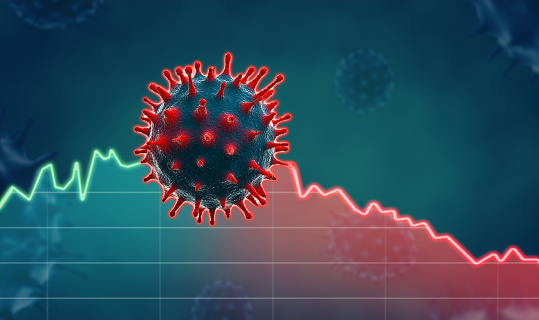The pandemic caused by COVID-19 has brought to light the need for equal access to effective vaccines. There are still numerous obstacles to overcome regarding vaccine hesitancy and equity, even though the development of various vaccines has offered a ray of hope. Concerns have been voiced, particularly regarding the possible introduction of Covid-19 booster doses and the potential impact those doses could have on vaccination hesitancy and vaccine equality. This piece will examine cowin booster dose registration’s influence on vaccination hesitancy and equity. Additionally, we will discuss the steps that may be taken to guarantee that everyone has access to vaccines on an equal basis.
Importance of addressing vaccine hesitancy and vaccine equity
Vaccines have played a critical role in preventing and controlling the spread of infectious diseases, including COVID-19. However, vaccine hesitancy and inequity have emerged as significant challenges in the global effort to vaccinate individuals against COVID-19. Vaccine hesitancy, characterized by a lack of confidence or trust in vaccines, can lead to lower vaccination rates, compromising public health and prolonging the pandemic. Similarly, vaccine equity, defined as the fair and just distribution of vaccines, is critical to ensuring that everyone, regardless of their socioeconomic status or geographic location, has access to vaccines.
Without addressing vaccine hesitancy and equity, the global effort to vaccinate individuals against COVID-19 may not be successful. Therefore, it is essential to understand the impact of COVID-19 booster shots on vaccine hesitancy and equity and develop strategies to address these challenges.
Impact of Covid-19 Booster Doses on Vaccine Hesitancy
Booster shots are given to increase a person’s resistance to the virus. Those previously vaccinated may benefit from additional doses of the virus-fighting medication known as a “booster,” which can help the body’s natural defences better withstand future infections. Individuals at a higher risk of contracting the virus because of their profession or way of life may benefit from a booster dose.
Although booster shots are required to maintain immunity, some research suggests they may have the opposite effect and increase vaccine reluctance. Booster doses have been linked to “booster fatigue,” a phenomenon where people refuse further vaccinations because they feel “over-vaccinated.” People who were on the fence about getting vaccinated in the first place might decide not to get the booster dose because of this.
There is also the possibility that receiving a booster dose will be interpreted as evidence that the initial vaccination was ineffective. This may cause people to lose faith in the vaccine, making it harder for them to take preventative action.
To effectively combat Covid-19, it is evident that booster doses are required. However, their potential effect on vaccine scepticism must also be considered. Healthcare professionals should be aware of the potential dangers of booster doses and actively promote vaccination by informing their patients and the public.
The full benefits of vaccination can be realized if measures are taken to reduce vaccine hesitancy and increase public understanding of the value of booster doses. Booster dosages can be essential in preventing the spread of Covid-19 if we tackle the problem correctly.
Impact of Covid-19 Booster Doses on Vaccine Equity
The problem of vaccine equality has taken on new urgency in light of the recent revelation that booster doses of the covishield vaccine near me may be available. Considerations of vaccination fairness are vital in deciding whether or not these booster shots are required.
The potential price of booster dosages is a primary concern. Those who can afford the booster doses will have a significant advantage over those who cannot if the booster doses are more expensive than the first dosages. As a result, individuals who can afford it may have booster shots, while others can’t go without them. This could put low-income people in greater danger of catching the virus because they won’t be able to get booster shots.
Availability of booster doses is an issue to consider, in addition to the potential financial repercussions. It may be difficult for all people from various countries to acquire the Covid-19 vaccination because the first doses are already in short supply. Increasing demand for vaccination and decreasing availability of booster shots are needed. This may cause a wider gap between vaccinated and unvaccinated populations, especially in low-income and rural locations, where booster doses may be more complex.
Finally, safety is an essential factor to think about. It is crucial to ensure the safety of booster doses is not jeopardized if they are necessary. Those who receive booster vaccine doses may be at greater risk of side effects if those doses are not as safe as the primary doses.
Vaccination equity becomes increasingly urgent when the globe contemplates the potential of booster doses for the Covid-19 vaccine. Suppose we want people of various socioeconomic backgrounds and locations to have the same access to the vaccine. In that case, we must consider booster doses’ costs, availability, and safety. This is the only way to guarantee that everyone in the country can access the vaccine.
Conclusion
The ultimate effect of Covid-19 booster doses on vaccination reluctance and vaccine equity is still unknown. The long-term success of booster doses will depend on the public’s openness to vaccination and the booster doses’ ability to halt the spread of the virus. Everyone needs to be able to get the vaccine, regardless of their economic situation or preexisting health conditions. Booster doses are being implemented in the hopes that vaccine reluctance, poverty, and other barriers to vaccination will be overcome and that everyone can be protected to the same extent.

